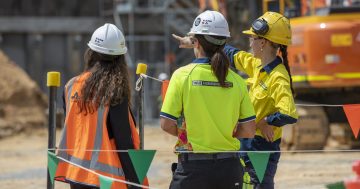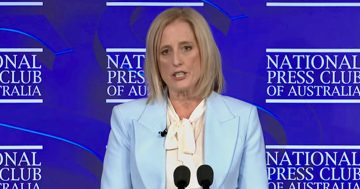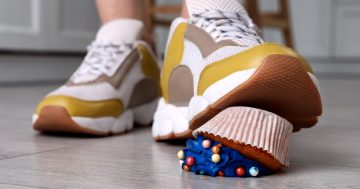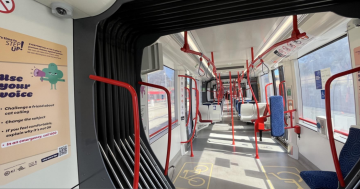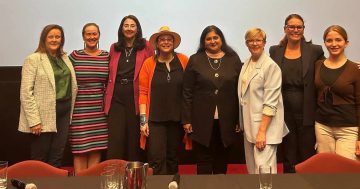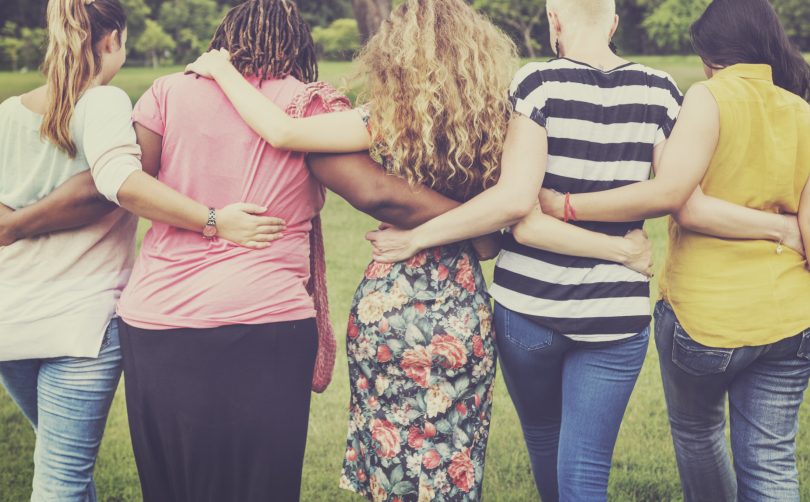
Gender equity is not just a woman’s issue, it’s a community issue.
This Friday, 8 March, is International Women’s Day. To mark the date, groups of women in all over the world will come together to celebrate the successes of women and reflect on what we need to make the world we live in a more equal one.
International Women’s Day is one of the days designated by the United Nations to raise awareness and promote positive action. This year’s theme of #balanceforbetter will continue the positive messages. Its key call is to create a world where everyone is able to fully contribute their talents and build connected communities.
This is a time that can be very enriching. Here in Canberra, there are breakfasts, lunches, lectures and awards. These events profile amazing women working in our local community and around the world. Stories of courage and overcoming adversity are being shared. People have the chance to meet other great people, and make new connections and create new networks. A great element of this focus is the inspiration you can draw from engaging with these issues.
Its a time of a year that I really enjoy. It’s inspiring and nurturing to get together with like-minded women who see the importance of this work. As I participate in events, however, it strikes me how few men participate. This has got me thinking about new ways we need to think about how we engage in conversations, particularly around achieving gender equality.
We need to be honest about how we are going to achieve gender equity. It’s not going to be achieved by women alone. Moreover, the discussion around gender inequality is one that needs to involve men and boys because it’s impacting negatively on us all. We need to recognise that achieving gender equity is not a battle between the sexes but one that we need to all engage with as a community issue. The impacts of gender inequality continue to be real and negative for us all, driving home its urgency.
Gender inequity is a key driver of gender-based violence. Gender-based violence is an everyday occurrence in Australia and is resulting in the death of women, men and children all too regularly. Destroy the Joint reports that nine women have died as a result of violence already this year. The Australian Institute of Health and Welfare reported that one woman a week and one man a month were killed by a current or former partner during 2012-13 to 2013-2014. A groundbreaking report last year examined the 152 identified homicides between intimate partners from 2010 to 2014 that had a history of domestic and family violence with the aim to better understand gender-based violence.
Sexual harassment is a shockingly common experience for many of us, no matter our gender. The Human Rights Commission reports that almost three quarters (72 per cent) of the Australian population, including more than four in every five women, and more than one in every two men, experience sexual harassment at some time in their lives.
Workplace sexual harassment is an everyday experience in many workplaces. The Human Rights Commission’s 2018 survey on sexual harassment in Australian Workplaces found that 39 per cent of women and 26 per cent of men have experienced sexual harassment in the workplace in the last five years. Young workers, workers with a disability, people who identified as a member of the LGBTIQ community, and Aboriginal and Torres Strait Islander people were more likely to have experienced sexual harassment in the workplace. This demonstrates the significance of intersectionality when it comes to understanding people’s experience of discrimination and harassment. The survey found that for both women and men, the most common type of workplace sexual harassment experienced was offensive, sexually suggestive comments or jokes. One finding of this report stands out – the non-action of people who witnessed sexual harassment. It found that while more than one-third of people witnessed or heard about the sexual harassment of someone else in their workplace, only one in three bystanders took action to intervene.
This International Women’s Day I am hoping to identify ways in which I can contribute to a community discussion on what we all can do – as women, men, mothers, fathers, work colleagues and friends to eliminate gender inequality. How are you celebrating International Women’s Day?
Ps – Before some of you ask, International Men’s Day is celebrated on 19 November each year.













